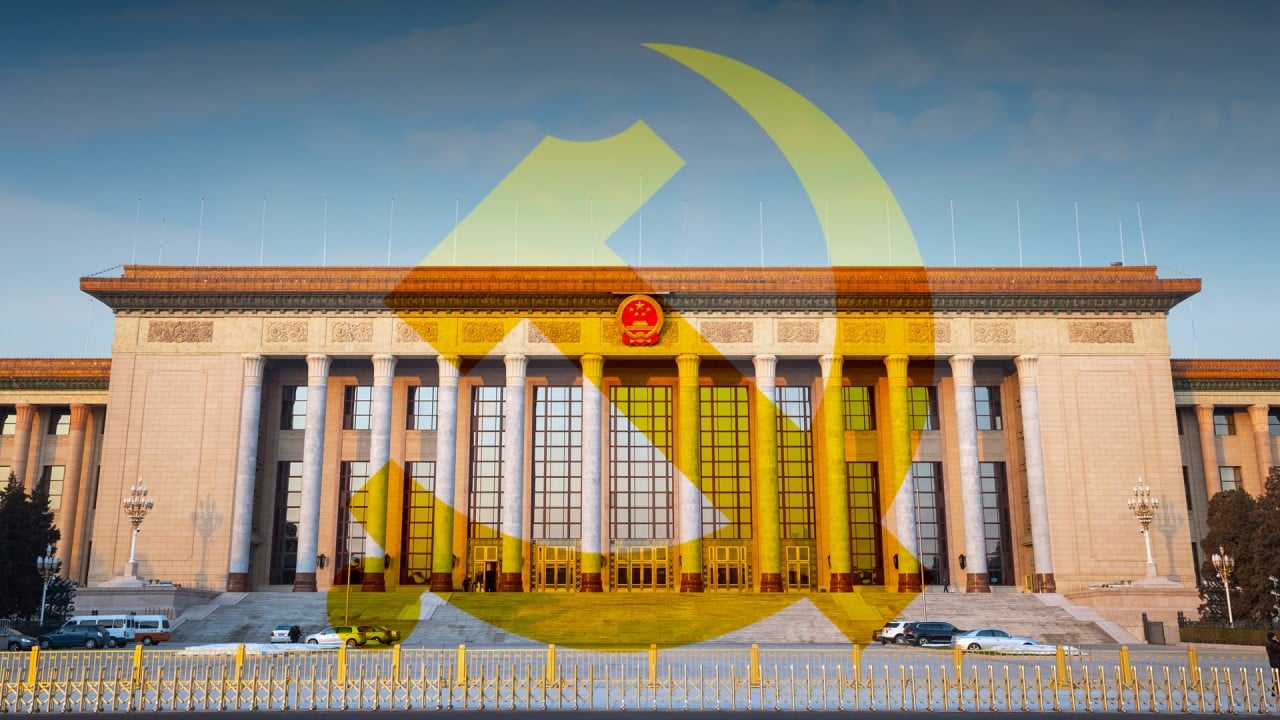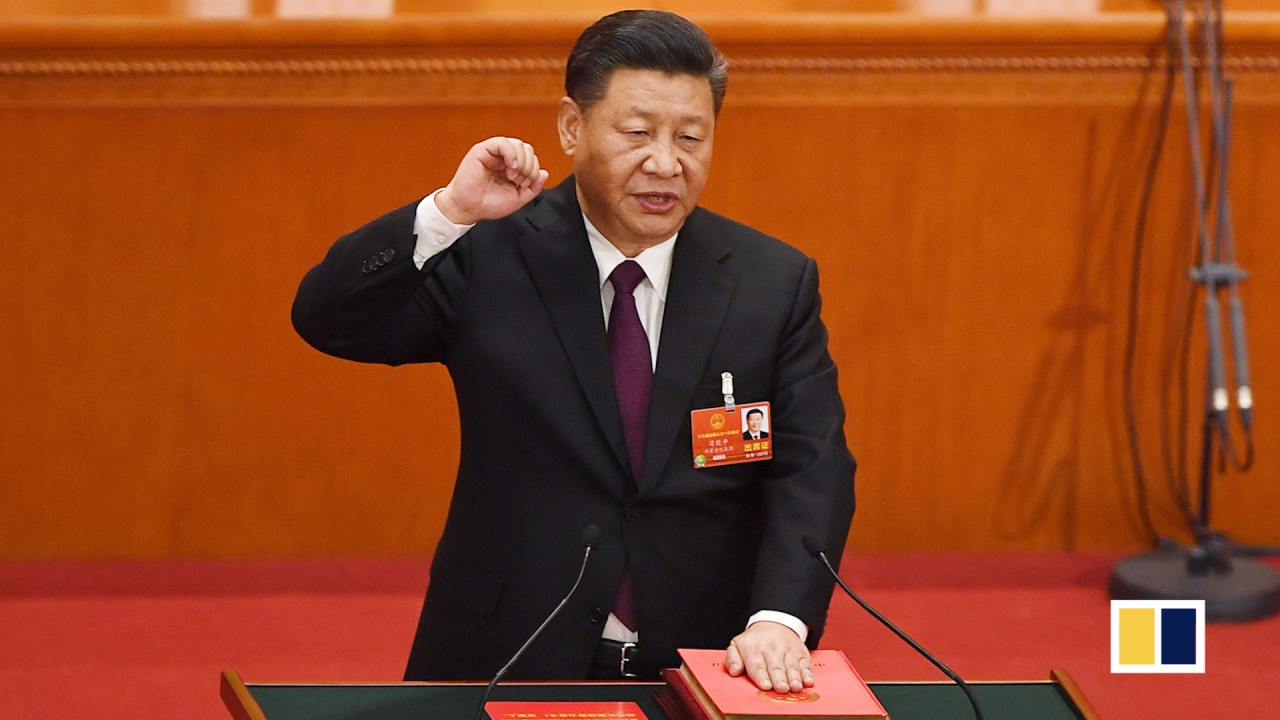
Why is retirement beckoning for 11 members of the Communist Party of China’s top decision-making body?
- Unofficial retirement age has been 68, but President Xi Jinping, now 69, is set to remain top leader
- Ahead of party’s national congress, attention has turned to likelihood of successor being anointed
Fading out gradually is seldom an option for top Chinese leaders.
They appear on prime-time news every night. Then, when the day of retirement comes, they suddenly vanish, rarely making public appearances or comments. Little is known about how they spend their time.
The biggest mystery is how retirement decisions are made. For those who sit on the Politburo – the top echelon of the ruling Communist Party – the only guideline, in place since the party’s first orderly power transition in 2002, remains the unwritten rule of retiring at the age of 68. It was established gradually after decades of political turmoil to rejuvenate the party and ensure a stable transition of leadership at the top.
The 20th party congress, starting on October 16, will produce the first exception to that rule when 69-year-old President Xi Jinping stays on for a third term as the party’s top leader, the first to do so since the death of Mao Zedong in 1976.

The big question now is whether any of Xi’s 24 Politburo colleagues will benefit from a similar exemption.
Eleven other Politburo members will have reached the unofficial retirement age. Two of them are members of the seven-man Politburo Standing Committee, the pinnacle of the party’s power structure, which is led by Xi.
Most experts interviewed by the Post said the privilege of breaking the unofficial retirement age rule at the Politburo level would be reserved for Xi. But exceptions could be made for special cases like Foreign Minister Wang Yi, who is already 68 but still considered a candidate to join the Politburo.
All eyes are on how Xi, hailed as the third definitive paramount leader in party history, will come up with a new set of rules for power transition.

“Xi is a man with a strong historical mission who feels that a lot more can be achieved under his continued leadership,” said Zhu Zhiqun, a political scientist at Bucknell University in Pennsylvania.
Setting aside the age rule would be a third one, but experts said the president would be reluctant to do so for everyone.
“Mostly likely those who have reached the retirement age will be replaced at the 20th party congress,” Zhu said.
The more things change, the more Xi focuses on stability
Deng Yuwen, a former editor of Study Times, the newspaper of the Central Party School, also said others would mostly observe the age rule.
“The upside is that it’s fair to everyone [other than Xi] but the downside is it would see people who are still capable step down,” he said. “I think they’ll still largely abide by the rules but special treatment might be granted to certain positions, like the foreign policy area.”
Both of China’s top diplomats – Politburo member Yang Jiechi and Foreign Minister Wang – will have passed the retirement age for their levels when the congress is held. Yang is 72, while Wang will turn 69 in October.
There are some rising stars in foreign affairs, but none carry the weight and authority of Yang or Wang. With China facing an increasingly complex and difficult external environment, some observers said Wang was likely to stay on and succeed Yang.
The dilemma for Xi is that he has to either make many more exemptions or lose such people with proven track records who are still energetic and active.
Yang Dali, a political scientist at the University of Chicago, also expects Xi will choose to adhere to the age limits.
Will China’s Xi Jinping be formally named ‘the people’s leader’?
“There are not many signs that they will be broken, especially when the top leader wants to promote younger officials, you’d need certain people to step down from their positions,” he said.
He also noted that at the ministerial level, the retirement age of 65 had been implemented quite rigidly.
Some ministerial-level officials have even received official notice that their services are no longer required on their 65th birthdays, the Post has learned.
“At the ministerial level, the retirement rule is still largely followed, because otherwise the costs of decision-making would rise dramatically,” Yang Dali said. “In the Chinese system there are lots of deputies, like vice-premiers and vice-ministers, so that makes it somewhat easier to fill the vacancies. It’s not like you’d run out of talent.”

The real challenge for Xi and the party in terms of power transition, Zhu said, lies in picking a successor for the president.
“The question is whether he will stay for another five years only or will stay on indefinitely,” he said. “It boils down to how to manage the power transfer from him to a successor peacefully five or 10 years later, but at this point there is no clear successor.”
In the past 30 years, a clear successor usually would join the Politburo Standing Committee by the time the second term of the party’s top leader started. That person, young enough to serve three more terms, would usually be handed a comprehensive and wide-ranging portfolio.
Xi and his predecessor Hu Jintao both served as vice-president for a term, anointing them as heir apparent, after they ascended to Politburo Standing Committee membership, but Wang Qishan, then 69, was appointed vice-president in 2018 despite not being a member, derailing what had become a succession train.
There are no young potential successors to Xi in the party’s top echelon.
Xi Jinping moves a step closer to third term as Communist Party boss
“To ensure stability and smooth power transition, the party will need to identify and groom the next generation of leadership soon after the party congress,” Zhu said.
The party takes pride in the fact that it is governed by more than 3,600 regulations and directives, but there are no rules laid down for the transition of power in the 25-member Politburo.
Those who sit on the top decision-making body get to vote and have a say on the most important issues facing China, and they always hold key state or party positions.
A set of rules that became known as “seven up, eight down” was believed to have been implemented in 2002 to set some boundaries on the closed-door bargaining over the top seats, with that year seeing the first orderly power transition of the top leadership since the party was founded in 1921.
At the 16th party congress in 2002 and the two that followed, all members of the Politburo above the age of 68 stepped down. On the other hand, there was no guarantee that those 67 or younger would retain their seats.
Many hailed the unwritten rule as a sign the party’s unpredictable politics were evolving in a more stable direction, with Zhou Ruijin, former deputy editor of People’s Daily, described it as “spectacular progress” in 2008.
Throughout China’s long history, the challenge of finding the right heir and ensuring a smooth transition of power has frustrated the country’s greatest emperors and political leaders – from Qin Shi Huang and Taizong of Tang to Mao and Deng Xiaoping.
Xi has yet to present an effective solution.





